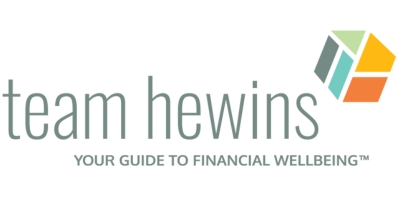Coronavirus: COVID-19
U.S. equity indices fell sharply Friday and again this morning after hitting new record highs last week. And interest rates fell yet again, with the 10-year Treasury yield hitting 1.37% and the 30-year Treasury yield setting an all-time record low well below 2%. If you have been thinking about refinancing your mortgage, this might just be the time.
Every day we see headlines about the Coronavirus. Actually, this is a large family of animal viruses which rarely infect humans. But now we have a new one that has jumped to humans, and the disease caused by this novel virus has been named COVID-19 by the World Health Organization (WHO).[1]
The articles we reference in the footnotes, from the CDC, Wall Street Journal and other sources make good reading if you want to be fully informed and get more data. We are writing this letter to address some simple big picture issues and discuss potential effects on financial markets and the global economy.
It started in central China
As you have probably heard by now, it started in Wuhan, a Chinese city of 11 million people in Hubei Province. Most of the confirmed cases and deaths have been in China, but the disease has also been reported in a number of other countries, in Asia and beyond. Japan and Korea have the most cases outside of China so far.
As concern about the new disease grew rapidly in January, the Chinese army essentially surrounded and isolated Wuhan[2], and eventually the entire Hubei Province of 50-60 million people, the largest mass quarantine in history. They have closed factories and schools and told people to stay home. Many chains of restaurants and stores have temporarily closed. Many countries are evacuating their citizens. The Chinese economy is slowing down.
Unfortunately, people coming and going from the province had already spread the disease to other parts of China, and Chinese people traveling abroad (e.g., to business conferences) spread it beyond China. As I write this, there is a massive global effort underway to contain the spread of this disease, and it is too early to tell how successful this will be.
The Global Economy
China has become the world’s second largest economy and the world’s largest importer of energy. They are a critical part of the supply chain for many companies, such as Apple[3]. And they are a huge buyer of consumer goods. So this problem starts out with the world being affected by problems in China, even before the disease itself potentially affects us more directly.
Apple provides an excellent example. In their recent conference call to discuss fourth quarter 2019 results, they discussed some of the current and future impacts the disease may have. Apple produces a lot in China, and sells a lot to China, so they expect negative impacts on both their supply line and consumer sales going forward. Some of their suppliers and manufacturing facilities have already been affected.
And we hear similar guidance from companies such as Walmart and Coca-Cola. It is clear that, even if the virus is successfully contained soon, there will be some reduction in global GDP.[4]
What other implications are there, especially considering how this has been handled by China?
I think it is fair to say that China has been less than forthcoming with information about this disease, and they continue to refuse to allow foreign researchers to come to China to learn about the disease and seek effective treatments for it.
As you know, we have written several letters about China in the last year (and before that). I can’t help but think this crisis and the way that China has handled it so far has to reinforce in the minds of business and political leaders the risks and serious problems we face.
Going back to Apple as an example, they have been seeking to diversify their supply chain, recognizing some of the risks of having too much of their product manufactured in one place, never mind in an autocratic country that routinely “plays hardball” and appears to seek every advantage it can obtain by questionable means (e.g., intellectual property theft). And now this disease and the resulting issues in China may cause Apple some serious problems delivering product to world markets.
It seems likely that the need to diversify supply chains away from China will become more urgent. I would expect renewed efforts to develop the capacity of countries like Vietnam to play an increased role in the supply chain. Many of the countries which will seek to play this role have a long way to go (e.g., even with basic infrastructure), but I think we will see more of that development in the near future.
What about equity markets?
We have seen equity prices fluctuate quite a bit this year as expectations for the disease and its effects change from day to day. I think it is safe to say that the eyes of the world are focused on this issue; it is not going to sneak up on anyone. The potential for the situation to worsen is not zero, but neither is the potential for this to be contained and for the economic effects to be modest.
This is another of those situations where the temptation is to head for the sidelines, selling some or all of your risky assets, and wait for things to clear up. As a practical matter, we believe that is a dangerous approach for a long-term investor. There does not come a day where they ring a bell and declare “all clear” and then allow you time to get reinvested in equities before their upward trajectory resumes.
We have been working with some of our clients for upwards of 25 years; we can look back and see we came through unpredictable times, and the sharpest of the ups and downs came fast and with little warning. In between the big moves we saw many smaller moves and can readily see that things might have looked bad at the moment, but the short sharp downturns often reversed just as quickly. Above all, 20/20 hindsight makes clear that there was no reasonable way to make decisions and adjustments in advance of future events.
What to do?
First of all, talk to us. Come in to see us, or let’s schedule a call or a video chat (we do a lot of these now). We can review your plans and your asset allocation and make sure they are consistent. Perhaps things have changed for you in some important way, and maybe it is time to reduce your equity a bit? This is not market timing; it is adjusting to your needs over time. And if that is needed, better to address it now than to overreact to the next downturn.
Let’s watch the progress of the efforts to contain this disease. Sadly, it has taken many lives already. Let’s all hope things improve soon and we do not see this take hold elsewhere. And maybe we will develop an effective treatment, even a vaccine.
And watch for signs that countries and companies are investing to develop new sources of supply. Not only will this reduce the risks associated with being undiversified, it likely means more jobs and development for more people, as the world continues the process of moving hundreds of millions of people out of abject poverty. Always a good thing!
Best,
Team Hewins, LLC (“Team Hewins”) is an SEC registered investment adviser; however, such registration does not imply a certain level of skill or training and no inference to the contrary should be made. The information contained within this letter is for informational purposes only and should not be considered investment advice or a recommendation to buy or sell any types of securities. Past performance is not a guarantee of future returns. It should not be assumed that diversification protects a portfolio from loss or that the diversification in a portfolio will produce profitable results. The opinions stated herein are as of the date of this letter and are subject to change. The information contained within this letter is compiled from sources Team Hewins believes to be reliable, but we cannot guarantee accuracy. We provide this information with the understanding that we are not engaged in rendering legal, accounting, or tax services. We recommend that all investors seek out the services of competent professionals in any of the aforementioned areas. For detailed information about our services and fees, please read our Form ADV Part 2A, which can be found at https://www.advisorinfo.sec.gov or you can call us and request a copy at (650) 620-3040.
[1] “2019 Novel Coronavirus (2019-NCoV) Situation Summary.” Centers for Disease Control and Prevention, Centers for Disease Control and Prevention, 23 Feb. 2020, www.cdc.gov/coronavirus/2019-ncov/summary.html.
[2] Case, Spencer. “Escape from Wuhan.” National Review, National Review, 21 Feb. 2020, www.nationalreview.com/magazine/2020/03/09/escape-from-wuhan/#slide-1.
[3] Axon, Samuel. “Apple Reports a Blowout Q1 2020, but Names Coronavirus as a Worry for the next Quarter.” Ars Technica, 29 Jan. 2020, www.arstechnica.com/gadgets/2020/01/apples-new-iphones-and-wearables-beat-expectations-in-q1-2020-earnings-report/.
[4] Hannon, Paul, and Amara Omeokwe. “Coronavirus Hits U.S. Business Activity.” The Wall Street Journal, Dow Jones & Company, 21 Feb. 2020, www.wsj.com/articles/coronavirus-impact-on-global-economy-more-muted-than-expected-11582285372?mod=article_inline.

